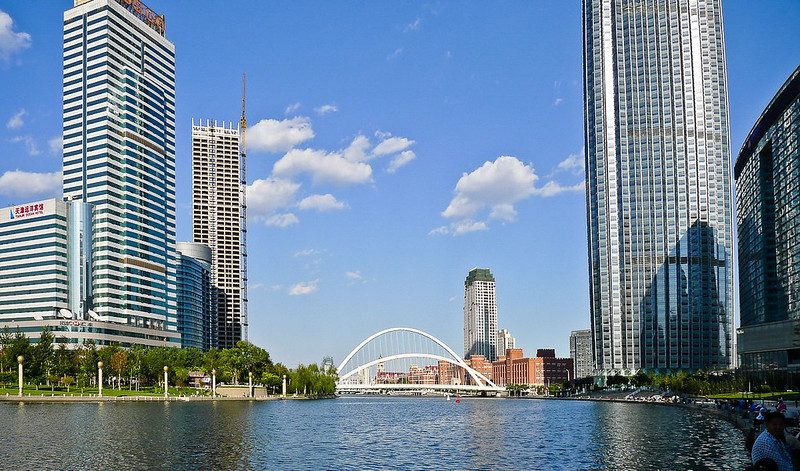Positive momentum on the landmark Black Sea Grain Initiative to help vulnerable people access food reflects “a victory for diplomacy” for those caught in a cost-of-living crisis as well as for Ukraine’s hard-working farmers, UN Secretary-General António Guterres told reporters on Thursday in Lviv, Ukraine.
Speaking at a press conference alongside Presidents Volodymyr Zelenskyy and Recep Tayyip Erdoğan of Türkiye, he expressed gratitude for the opportunity to visit “again during such a difficult period”.
Despite that the Black Sea Grain Initiative was signed a few weeks ago, the UN chief reiterated that “there is no solution to the global food crisis without ensuring full global access to Ukraine’s food products and Russian food and fertilizers”.
Assistance en route
In less than one month, 21 ships have departed from Ukrainian ports and 15 vessels have left Istanbul for Ukraine to load up with grain and other food supplies, recapped Mr. Guterres.
“As we speak, more than 560,000 metric tons of grain and other food produced by Ukrainian farmers is making its way to markets around the world,” he said, including the first UN-chartered vessel carrying Ukrainian wheat to people suffering in the Horn of Africa from the worst drought in decades.
Meanwhile, signs have been emerging that global food markets are beginning to stabilize as wheat prices dropped by as much as eight per cent following the signing of the agreements and the FAO Food Price Index by nine per cent in July – the biggest decline since 2008.
Although most food commodities are currently trading at prices below pre-war levels, they are still very high.
“Let’s have no illusions – there is a long way to go before this will be translated into the daily life of people at their local bakery and in their markets,” spelled out the top UN official, reminding that “supply chains are still disrupted [and] energy and transportation costs remain unacceptably high”.
Only the beginning
Noting the rarity and inherent fragility of the agreements, Mr. Guterres upheld that they must be “constantly nurtured”.
As the Joint Coordination Center (JCC) continues to work professionally and in good faith to keep the food flowing, he appealed that those involved “overcome all obstacles in a spirit of compromise and permanently settle all difficulties”.
“Getting food and fertilizer out of Ukraine and Russia in larger quantities is crucial to further calm commodity markets and lower prices”, and essential to providing relief to the most vulnerable”.
The UN chief underscored the urgency of reversing the turmoil in the global fertilizer market, which is currently threatening next season’s crops – including a world-wide staple, rice.
Meanwhile, the UN will continue in solidarity with the Ukrainian people and national partners to help provide humanitarian support to people in need “wherever it is required,” he said.
“We will do our best to scale up our operations to face the difficult the coming winter”.
Problem of war
“The heart of the problem that brings us here remains the war,” reminded the Secretary-General, reiterating that the Russian invasion is “a violation of the territorial integrity of Ukraine” and of the UN Charter.
The war has inflicted innumerous deaths, massive destruction, displacement, and dramatic violations of human rights, he stated, adding that in line with the Charter and international law, “people need peace”.
UN Photo/Mark Garten
Secretary-General António Guterres (left) meets with Volodymyr Zelenskyy, President of Ukraine, in Lviv, Ukraine.
Nuclear threat
The top UN official expressed his grave concern over the unfolding situation in and around Europe’s largest nuclear power plant in Zaporizhzhia.
“Common sense must prevail to avoid any actions that might endanger the physical integrity, safety or security of the nuclear plant,” he said, adding that the facility “must not be used as part of any military operation”.
Mr. Guterres upheld the urgent need for an agreement to “reestablish Zaporizhhia as purely civilian infrastructure” and ensure the safety of the area.
After making an assessment, with the agreement of both Russia and Ukraine, the UN Secretariat has determined that it can support the Organization’s nuclear overseer, IAEA, in conducting a mission to the Zaporizhzhia Nuclear Power Plant from Kyiv.
The UN chief outlined that military equipment and personnel should be withdrawn from the plant, no other forces or equipment should be deployed there and the area must be demilitarized.
“Any potential damage to Zaporizhzhia is suicide,” he underscored.
POWs
The Secretary-General also called attention to the investigation of an “unacceptable” incident in an Olenivka detention facility on 29 July when a mysterious explosion tore through a prison housing hundreds of Ukrainian detainees.
“All prisoners of war are protected under International Humanitarian Law,” he reminded, adding that the international Red Cross “must have access to them wherever they are kept”.
Fact-Finding mission
Against this backdrop, the UN chief decided to establish a fact-finding mission – the terms of reference of which were shared with Ukraine and Russia along with the make-up of the team, including his intention to appoint General Carlos dos Santos Cruz of Brazil to lead this mission.
Obtaining the necessary assurances to guarantee secure access to Olenivka and any other relevant locations is currently underway.
“To put it simply, a fact-finding mission must be free to find the facts. The team must be able to gather and analyze necessary information,” he stated.
“Above all, that means safe, secure and unfettered access to people, places and evidence without any interference from anybody”.
In closing, the Secretary-General assured President Zelenskyy of the UN’s support in promoting “human rights, international law and the cause of peace”.
















%20(2)%20(1).jpg)

Discussion about this post